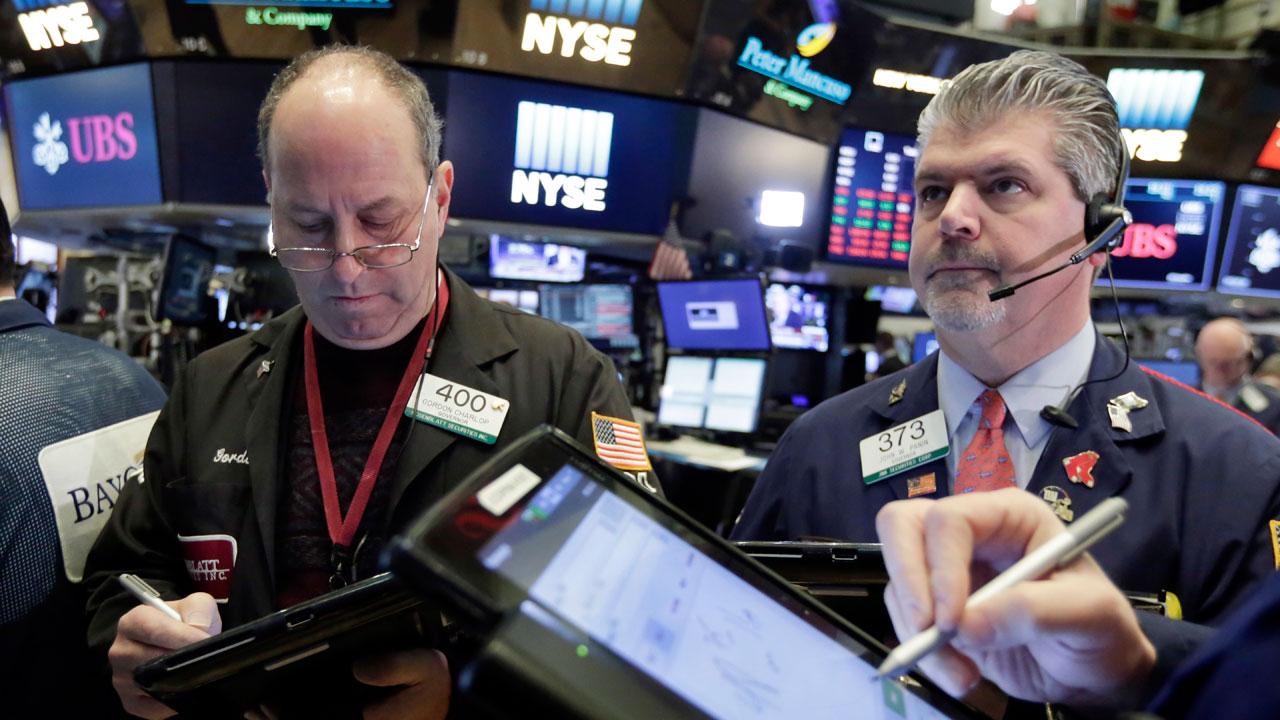Shutdown nears end, but Wall Street concerns over US-China trade remain
President Trump's backing of a short-term deal to end a 35-day partial government shutdown, the longest in history, gives temporary reprieve to Wall Street, while concerns remain over the future of U.S.-China trade negotiations as critical talks between the two nations near.
U.S. equity markets rose on the news that Trump would support a deal to reopen the government and continue discussions over federal money for a U.S.-Mexico border wall, a White House demand that Democrats, so far, have refused to agree to.
| Ticker | Security | Last | Change | Change % |
|---|---|---|---|---|
| I:DJI | DOW JONES AVERAGES | 50135.87 | +20.20 | +0.04% |
| SP500 | S&P 500 | 6964.82 | +32.52 | +0.47% |
| I:COMP | NASDAQ COMPOSITE INDEX | 23238.66991 | +207.46 | +0.90% |
The repreive could be short-lived, however. The tentative deal -- which includes no assurances of future spending for new border security -- would only last for three weeks. And if no agreement is reached on border funding, Trump on Friday threatened to reshut down the government after Feb. 15, when the short-term deal would expire.
While the blue-chip Dow Jones Industrial Average, the tech-heavy Nasdaq and the broader S&P 500 markets have continued to rise in January despite the lapse in funding, top business executives have ramped up their warnings in recent days on the impact the shutdown could have on U.S. economic activity.
The top equity markets – which often favor gridlock in Washington D.C. because it signals consistency – have historically performed well during government shutdown. The S&P 500, for example, rose during the prior five lapses in federal funding.
Along with the shutdown, markets are dealing with other worries. Concerns remain over the future of trade talks between the U.S. and China. Commerce Secretary Wilbur Ross on Thursday said the two countries are "miles and miles" apart on key issues like the enforcement measures, along with Beijing's theft of intellectual property. A delegation of 20 Chinese officials is slated to visit Washington D.C. next week.
Still, the funding lapse rippled through top American businesses. Southwest Airlines CEO Gary Kelly, for example, said it would cost the carrier $15 million in the first quarter, while Delta's CEO said it is costing his airline $25 million each month. On Friday, major northeastern airports, including New York's LaGuardia Airport, faced delays due to staffing shortages from the shutdown.
| Ticker | Security | Last | Change | Change % |
|---|---|---|---|---|
| LUV | SOUTHWEST AIRLINES CO. | 53.34 | -0.90 | -1.66% |
| AAL | AMERICAN AIRLINES GROUP INC. | 14.99 | -0.25 | -1.64% |
| UAL | UNITED AIRLINES HOLDINGS INC. | 116.20 | +0.29 | +0.25% |
| DAL | DELTA AIR LINES INC. | 75.00 | -0.30 | -0.40% |
| UAL | UNITED AIRLINES HOLDINGS INC. | 116.20 | +0.29 | +0.25% |
Alongside lost profits, companies seeking to go public faced delays in reviews from the Securities and Exchange Commission, while waning available funding at the Food and Drug Administration threatened the approval timelines for new treatments from top pharmaceutical companies.
As of Jan. 11, the U.S. economy lost more than $3.6 billion due to the shutdown, according to a recent report from S&P Global Economics. That number was expected to rise to $5.7 billion -- also the total Trump was demanding for a wall on the U.S.-Mexico border -- by Jan. 25.
CLICK HERE TO GET THE FOX BUSINESS APP
Top White House economic advisor Kevin Hasset recently warned that the lapse in funding could bring economic activity during the first quarter to "very close to zero."




















